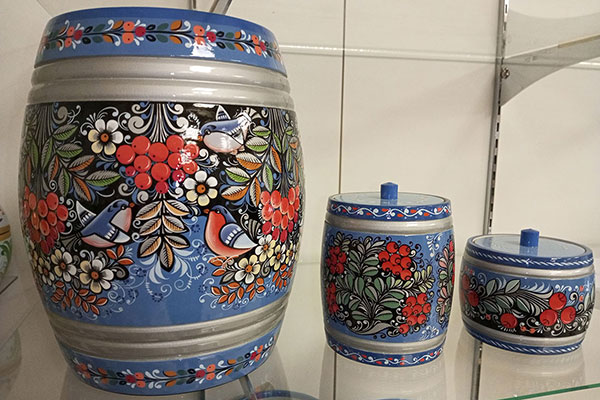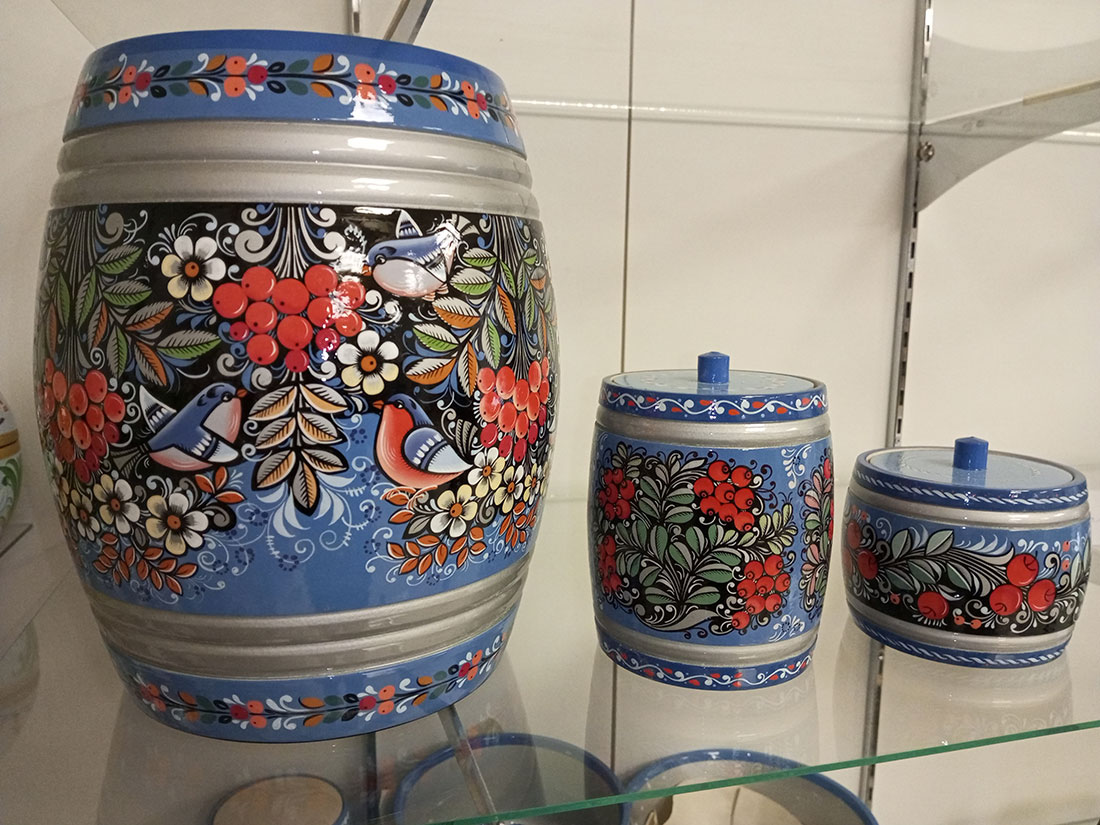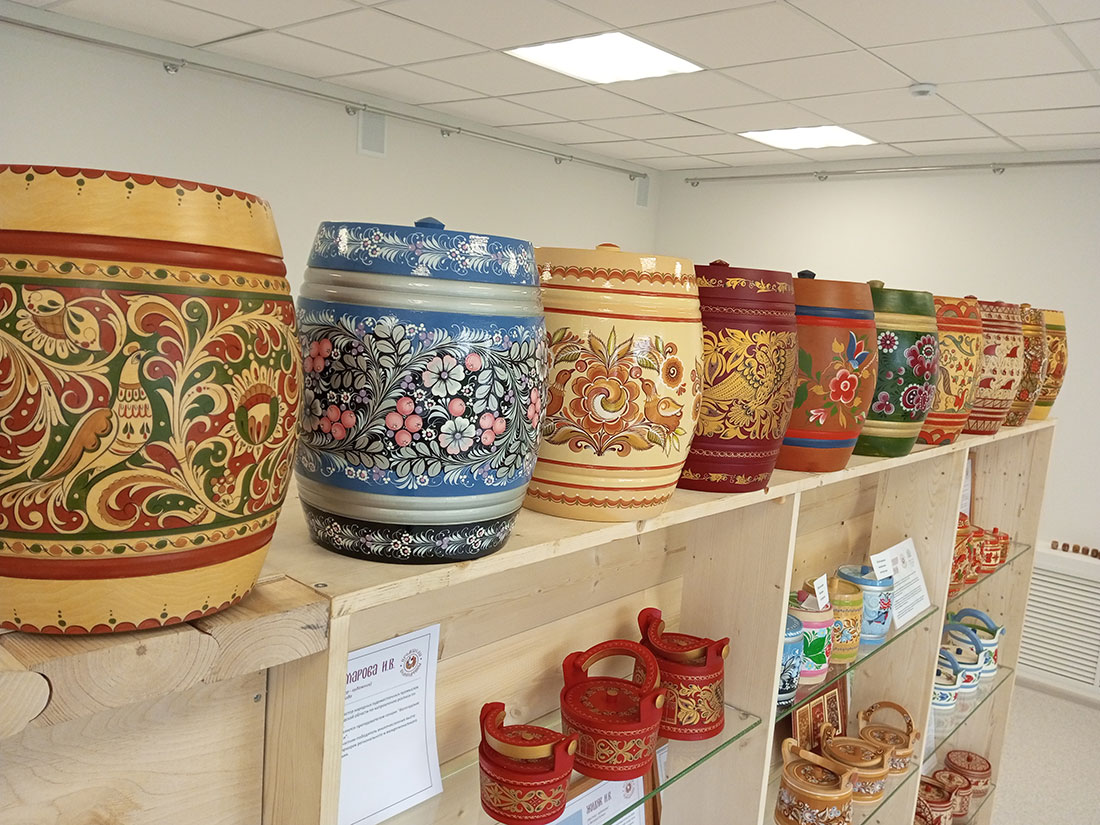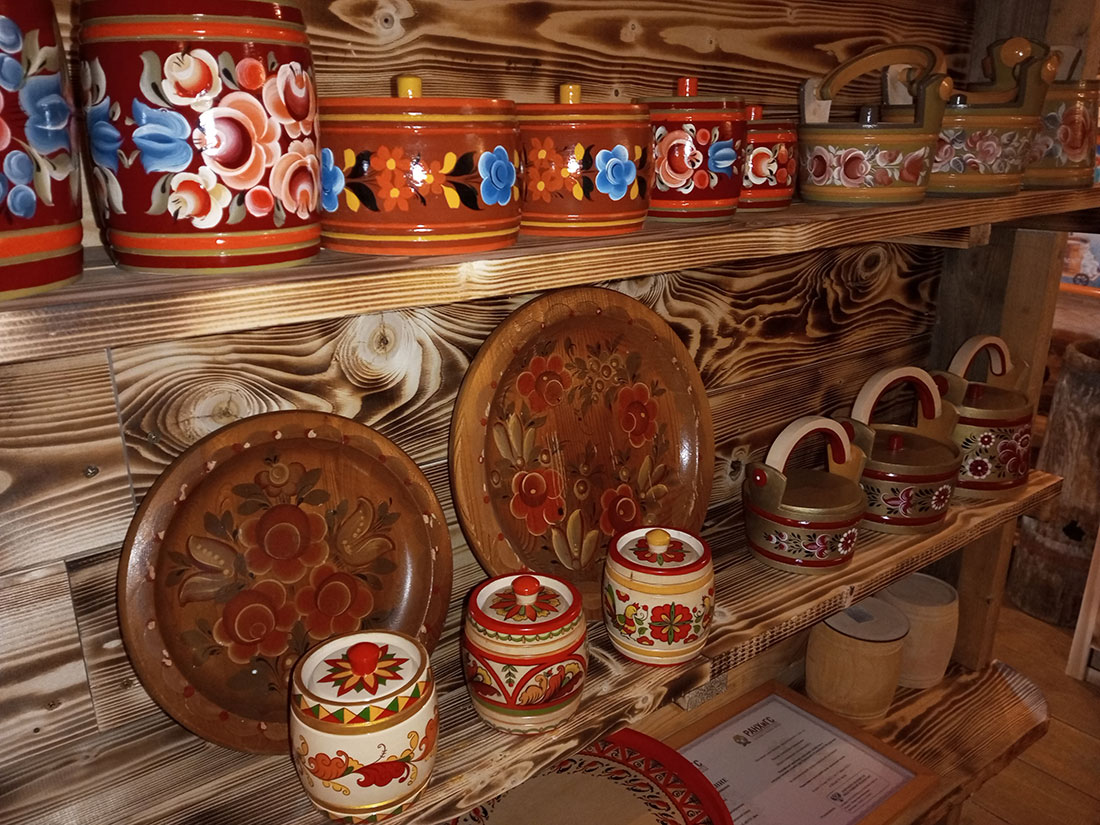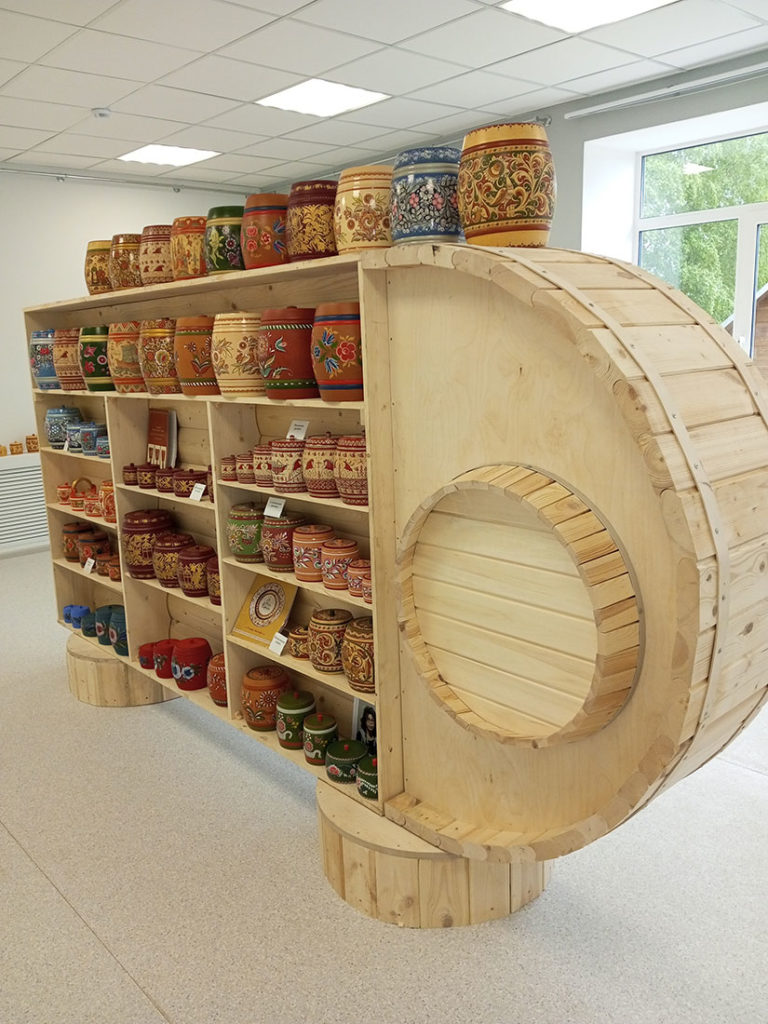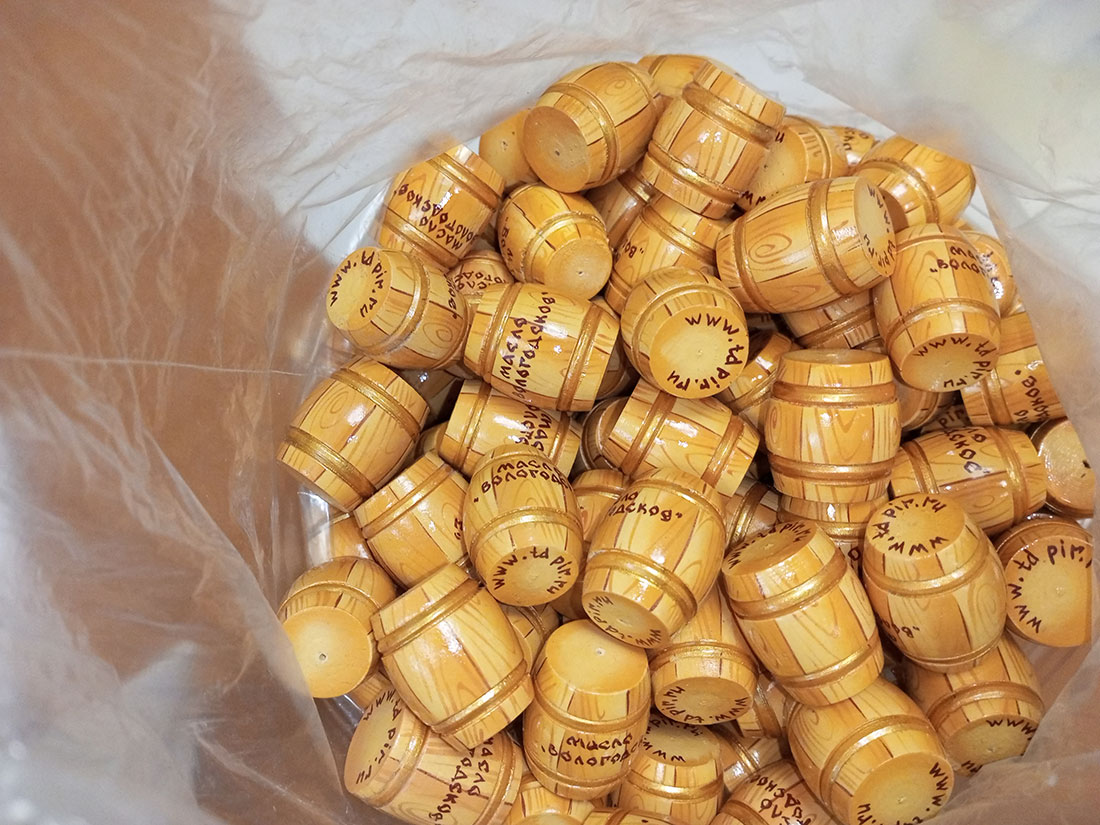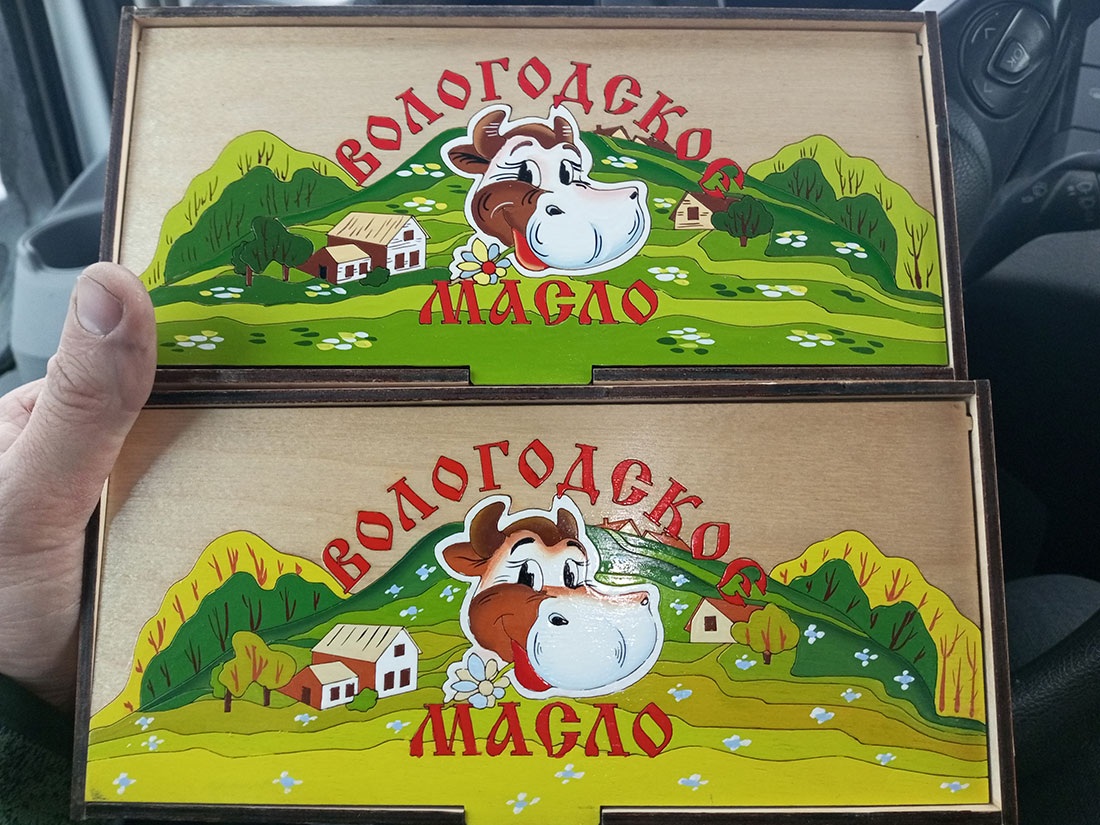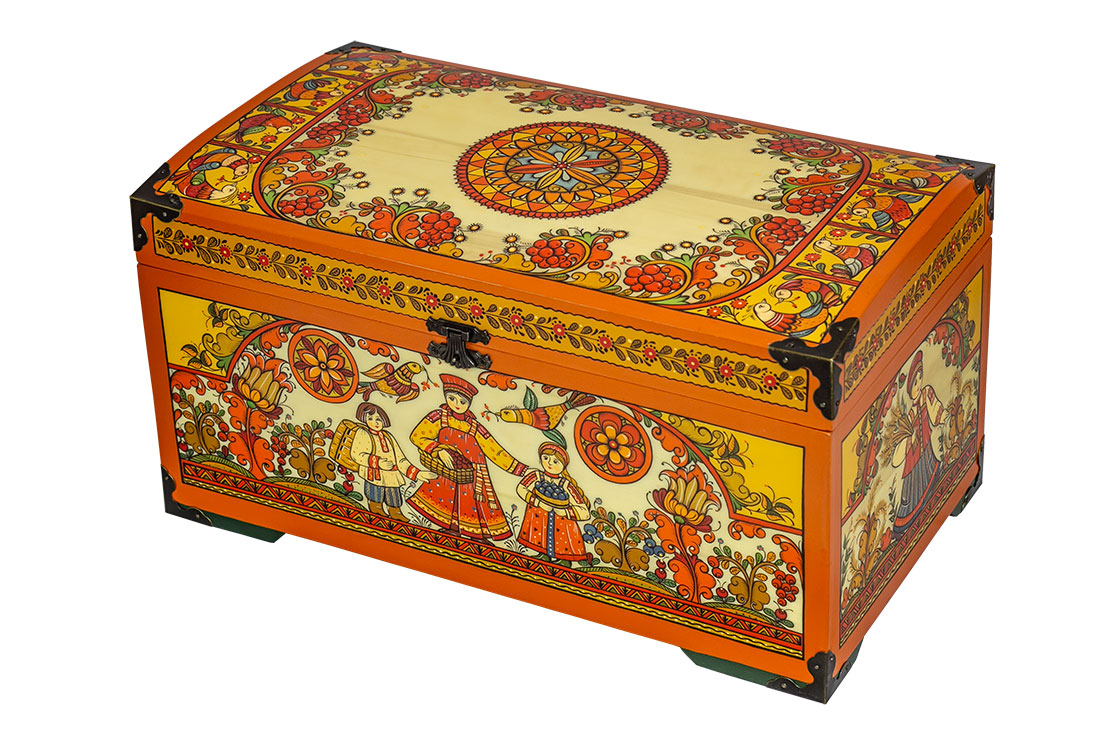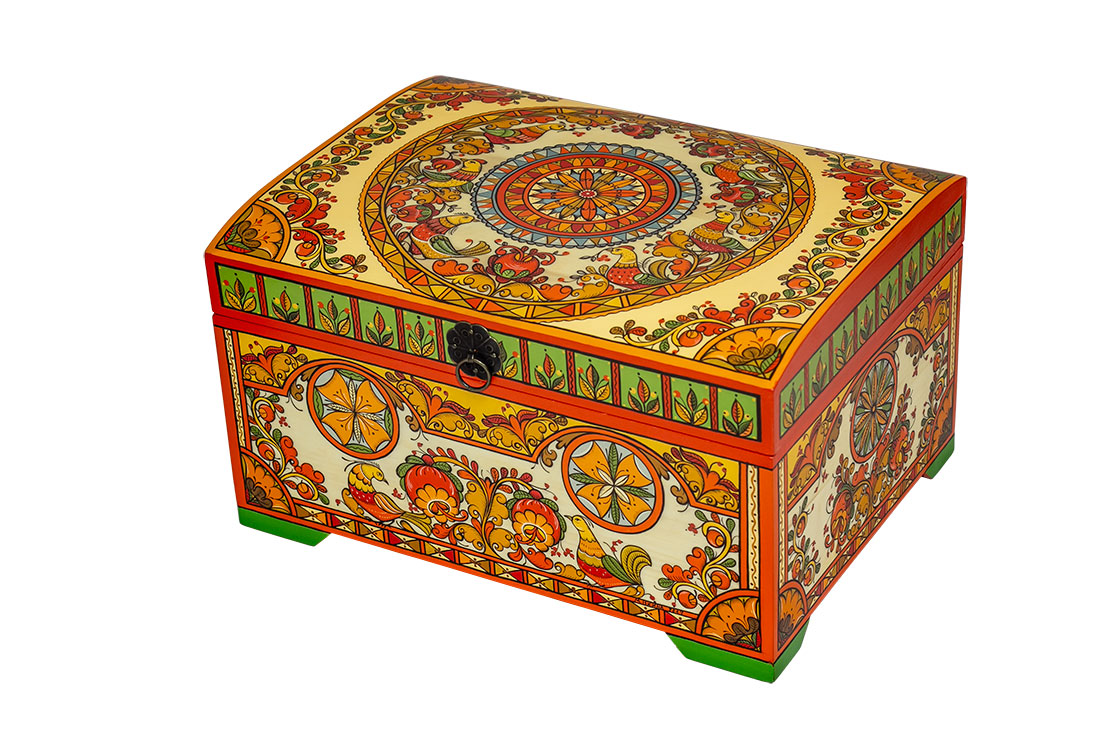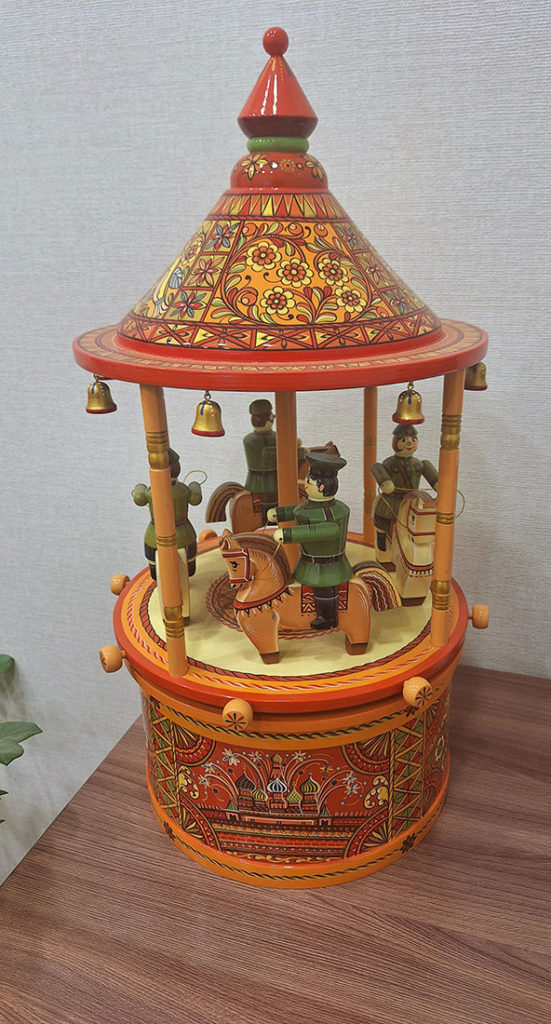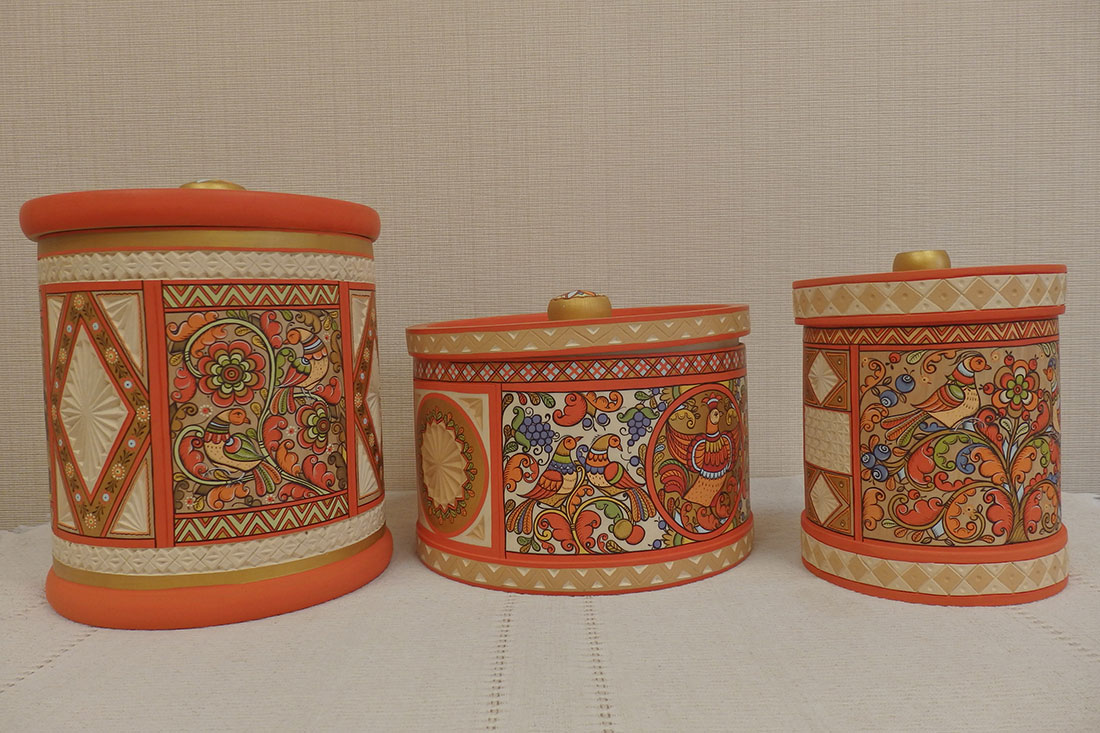The Vologda enterprise of folk arts and crafts “Nadezhda” is one of the few active enterprises in the region that works towards preserving traditional paintings. Its history dates back to 1976, when so-called woodworking plants were developed throughout the country. Today, the enterprise employs just over 30 people who, like before, handcraft the most beautiful and useful household items. The enterprise is located at 52 Engel’s Street (Zarechye microdistrict, “French Quarter”). The “Nadezhda” factory produces a huge assortment of food cases (over 400) and is the main supplier for the gift and designer packaging of the famous Vologda butter as well as equally delicious and useful Vologda honey and condensed milk. “Nadezhda” also produces souvenir products with a New Year fairytale theme. As for cooperation with foreign partners, the Vologda factory supplies wooden barrels for storing cocoa beans and whole coffee beans to Africa.
As raw materials, local wood of two types – alder and aspen – are used, as they differ from other trees in their increased iodine content, which is essentially a natural antiseptic.
In 2022, thanks to participation in the competition of the Presidential Fund for Cultural Initiatives, financial support was obtained for the creation of a museum-workshop at the factory, where it will be possible to visually familiarize oneself with the features of northern paintings, their history, and immerse oneself in the world of artistic beauty that local masters have been creating for over 40 years.
One decade – one museum!
In the Vologda region, this will be the third specialized museum dedicated to the activities of local folk art craft enterprises. For example, in Veliky Ustyug – the homeland of Ded Moroz – a similar museum has been operating at the “Northern Chern” production facility since 2002, and in the regional capital on Kremlin Square, guests have been welcomed at the Vologda Lace Museum since 2010. All these museums are specific and unique in the composition of their collections, with a common goal of preserving the cultural heritage of the region.
In addition, during guided tours of the museum-workshop at the factory, visitors will be able to independently explore the production areas (workshops) and the manual production technology of items at various stages through thematic video viewing. There are about a dozen stages in the manufacturing process, each with its own nuances, violation of which may result in a defective product.
Furthermore, under the guidance of a master artist in the workshop, visitors will have the opportunity to try their hand at their preferred style of painting and paint a blank piece to take home as a souvenir. The premises are also planned for master classes, educational practices, and internships with students from the Governor’s College of Folk Crafts, as well as hosting working meetings of the regional art expert council and thematic exhibitions and competitions among individual artists.
Vologda paintings encompass around 20 different types (techniques) of painting that were prevalent across the vast territory of Vologda province. Each direction is unique and mesmerizing in its own way. The craft experienced active development in the mid-19th to early 20th centuries, incorporating some fundamentals of wood carving. However, today at the factory, artists only use two types: one is the traditional Boretsky painting, referred to by masters as graphic painting. The second is a painterly technique called “Vologda Silver,” known for its silvery-blue background, plant ornamentation, and recognizable northern berries – cranberries, blueberries, and rowanberries.
To learn more about the exhibition, visitors can sign up for guided tours and master classes through the museum department:
+7 (921) 545-94-95
suvenirvologda@yandex.ru
+7 (8172) 54-36-20
The museum is a joint project of the Folk Art Craft Enterprise, the Association “Crafts of Vologda Region,” and the Governor’s College of Folk Crafts (Vologda).

A new addition to the museum ranks 
A new addition to the museum ranks 
A new addition to the museum ranks 
A new addition to the museum ranks 
A new addition to the museum ranks 
A new addition to the museum ranks 
A new addition to the museum ranks 
A new addition to the museum ranks 
A new addition to the museum ranks 
A new addition to the museum ranks
